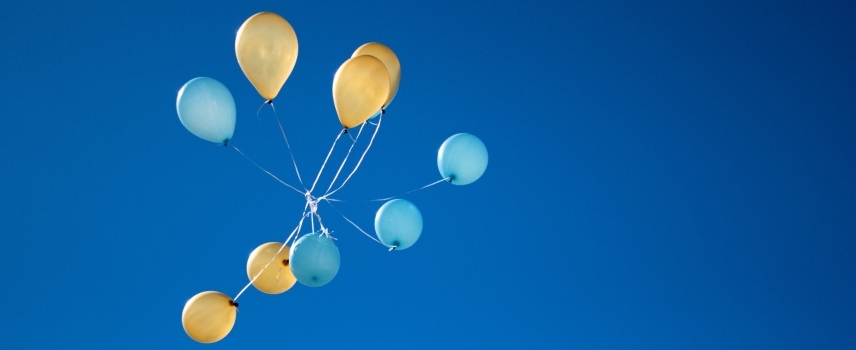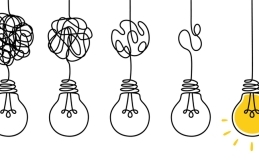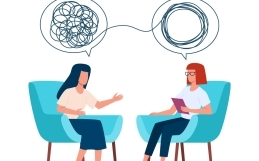Forgiveness is never easy, but it can be freeing.
Letting go is easier said than done; however, once you accomplish it, you can free yourself from the burden of holding onto what hurts you. Whether you’re finally free from that bad relationship that haunts you, free from the image you once had of your life that looks different from reality, free from societal expectations, or a childhood that is difficult to remember but you can’t seem to forget. Overall, there is freedom from resentment and pain that comes with letting go.
You probably want personal freedom and to let go to free yourself, but you don’t know how to begin the process. You don’t know how to let life be the way it is in this moment, let go of a future that hasn’t occurred yet, and make peace with the past that didn’t go how you wanted it to. We want tranquility, and we know letting go is one avenue to get there, yet we tightly grip the ideas, dreams, grievances, and pain that keep us from the peace we desire. Why do we do that? Why can’t we just let go and move on?
First and foremost, letting go is a process that takes time. For example, to let go so you can forgive someone means making a conscious effort to release something hurtful that happened to you by no longer holding onto negative thought patterns, anger, resentment, or pain. By engaging in this process, you are making an active choice to no longer suffer from something you never had control over. When we see letting go this way, it becomes clear that it is also freedom. It is freedom from past and future victimization because when you let go of painful events, they no longer define or control your present.
Why Letting Go Is So Hard
You’re not a bad person if you’re finding it difficult to let go or even to forgive someone who hurt you; you’re human. As humans, we’re pre-programmed to avoid danger or anyone who has proven untrustworthy. We are programmed to remember negative experiences so that we can prevent them. Therefore, forgiving someone who harmed us or letting go of a bad experience goes against our instincts. More often than not, it is wise to listen to your instincts. But if they’re keeping you trapped in a place that doesn’t allow you to escape your suffering, it’s time to decide to let go.
As the influential teacher Ajahn Chah explained in his book Food for the Heart, when we choose not to follow the path of letting go, it is like deciding to carry a heavy rock around with us, weighing ourselves down. We don’t know what to do with the rock, so we keep carrying it around. Even if others explain the benefit of throwing away the rock, we’re still afraid to let it go. We’ve been carrying it for so long that it’s become a part of us, and we continue to carry it until we get so weak and tired that we have no choice but to let it go. Only then can we finally feel at peace and recognize how physically and mentally heavy that burden was. Letting go of negative feelings and pain invites peace and the release of unresolved emotional turmoil.
When deciding to let go, working on developing self-awareness is essential. When we develop self-awareness, we are more mindful of ourselves, who we are, and how we react to life’s challenges and the people in our lives. To be more self-aware is a gift of being more conscious, intentional, and wise. We can more readily note how we feel and then make a mindful decision on how to respond. When we aren’t self-aware, we float through life, reacting to situations in unhelpful ways. We end up with a life by default, not a life we choose. We wind up feeling stuck in our circumstances and helpless to make changes, making it especially difficult to let go and feel personal freedom. We often place all the blame on others and have a hard time releasing what hurt us and taking accountability for our lives.
Misconceptions About Letting Go
There is a misconception that letting go means that whatever happened is done and removed from our lives. Letting go doesn’t mean it didn’t happen or allows the person who hurt you off the hook; it certainly did happen, and that person is accountable. We are aware, accepting, and conscious of what happened. We deeply understand the facts and effects of what took place, though it no longer stings like it used to. Instead of wishing it didn’t happen, we don’t fight against it; we acknowledge its presence and let it be how it unfolded.
It helps to remember that we grow the most when we are challenged. Life’s obstacles show us who we are and how capable we are of standing on our own two feet. When we see our challenges as opportunities for growth rather than as stressful or painful constraints that hold us back, we reframe the situations that happened to us. Many people who have been hurt in excruciating ways learn how resilient they are through those events. They find meaning in giving back and helping those who have been through similar experiences. When we find meaning, purpose, and growth in our misfortunes, we can reframe the situation and refresh the narrative of how it will affect us, allowing us to let go and move forward.
We don’t have control over what happens to us, as much as we may try, though we do control how we choose to deal with those events. When deciding to let go, we focus on changing what we can control, our perspective. We feel hopeless and powerless when we focus on changing what we can’t. By shifting that focus, we regain power and release ourselves from an emotional prison.
Did you enjoy reading this article?
Once a week I send out a newsletter with new articles and unique content for readers. It is my way of staying in touch with you and giving you free advice based on some important topics.
Click here to sign up for my newsletter.





